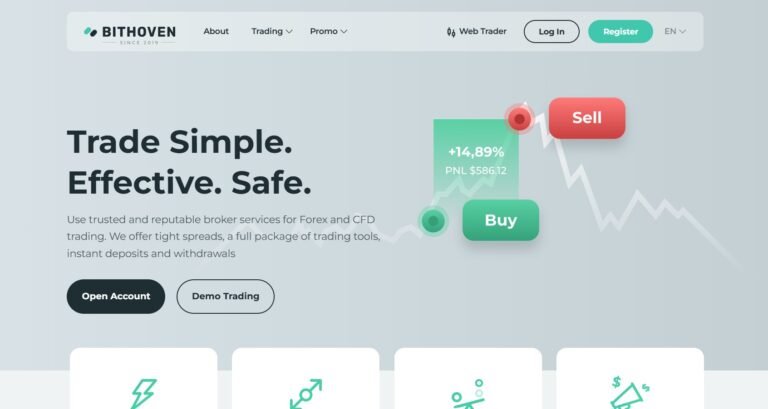Table of Contents
Introduction to Bithoven
This article presents a detailed Bithoven review, targeting those who have been scammed by Bithoven and want clear facts, as well as those considering investing and seeking trustworthy information. Bithoven claims to offer a cryptocurrency trading platform with a range of digital assets and promises seamless trading experience.
But many ask: is Bithoven a scam or a legitimate broker? This Bithoven review uncovers all the warning signs and essential information you should know before investing your money.
Bithoven: Regulation & Legal Status
Bithoven appears to be registered in an offshore jurisdiction and lacks regulation from major financial authorities such as the FCA, ASIC, or CySEC. Despite references on its website suggesting regulatory compliance, no verifiable license exists from top-tier regulators.
Trading with unregulated brokers means no client fund protection, no official dispute resolution, and increased risk of fraud. Many fraudulent brokers use misleading claims of regulation to lure traders. Learn how to spot a scam broker before it’s too late.
The absence of proper oversight raises serious concerns about whether Bithoven is a scam.
Trading Conditions & Platform Analysis of Bithoven
Bithoven offers several account types with varying minimum deposits, but specific details on leverage, spreads, and execution remain unclear or unusually favorable. The broker supports popular platforms but does not clarify if it uses transparent liquidity providers or operates under STP/ECN models.
Remember, having a MetaTrader 5 platform does not guarantee safety or trustworthiness. It is crucial to know what to check before signing up with a trading platform. Such gaps in transparency make it harder to dismiss the idea that Bithoven might be a fraud.
Reputation & User Reviews About Bithoven
Online reviews for Bithoven on sites like Trustpilot are limited and often show patterns of fake or unverifiable testimonials. Common user complaints include delayed or blocked withdrawals and poor customer service.
Web traffic data from SimilarWeb also suggests low user engagement, inconsistent with claims of a large customer base. These indicators should prompt caution when considering Bithoven as a trading option.
How to Test Whether Bithoven Is a Scam
Start by verifying Bithoven’s licensing status on official regulator websites such as FCA, ASIC, or CySEC. Lack of registration is a significant red flag.
Read through verified user reviews and complaints on trusted platforms like Forex Peace Army or TrustPilot. Check the broker’s website and platform design for professionalism and reliability.
Pay close attention to withdrawal policies — any broker that offers crypto-only payments or lacks transparent withdrawal terms should be treated with suspicion. Avoid brokers promising guaranteed profits without risk; such claims are never genuine.
If possible, test the broker’s demo account first to assess platform usability and execution without risking your capital.
Final Verdict & Alternatives
Given the lack of regulation, transparency issues, and mixed user feedback, it is advisable to avoid Bithoven. Instead, consider well-regulated brokers such as IG, Pepperstone, or FXTM that provide secure and transparent trading environments.
Always prioritize trading with licensed brokers to ensure your funds are protected and your trading experience is safe.


